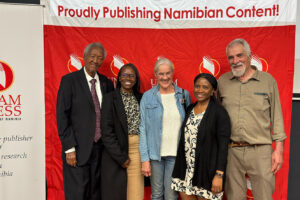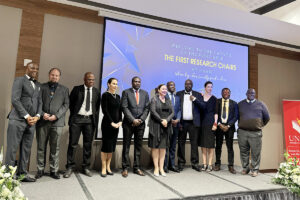On Saturday, 21 September 2024, the University of Namibia (UNAM) Main Campus was filled with the vibrant colours and sounds of Aawambo tradition during the annual Oshipe Festival. The event, dedicated to the celebration of the Aawambo Harvesting Festival, showcased the deep cultural roots and customs of the Aawambo people. Organised under the guidance of Professor Petrus Mbenzi, the Oshipe event was driven by the fourth-year Oshiwambo Language students, who participated as part of their academic assessment.
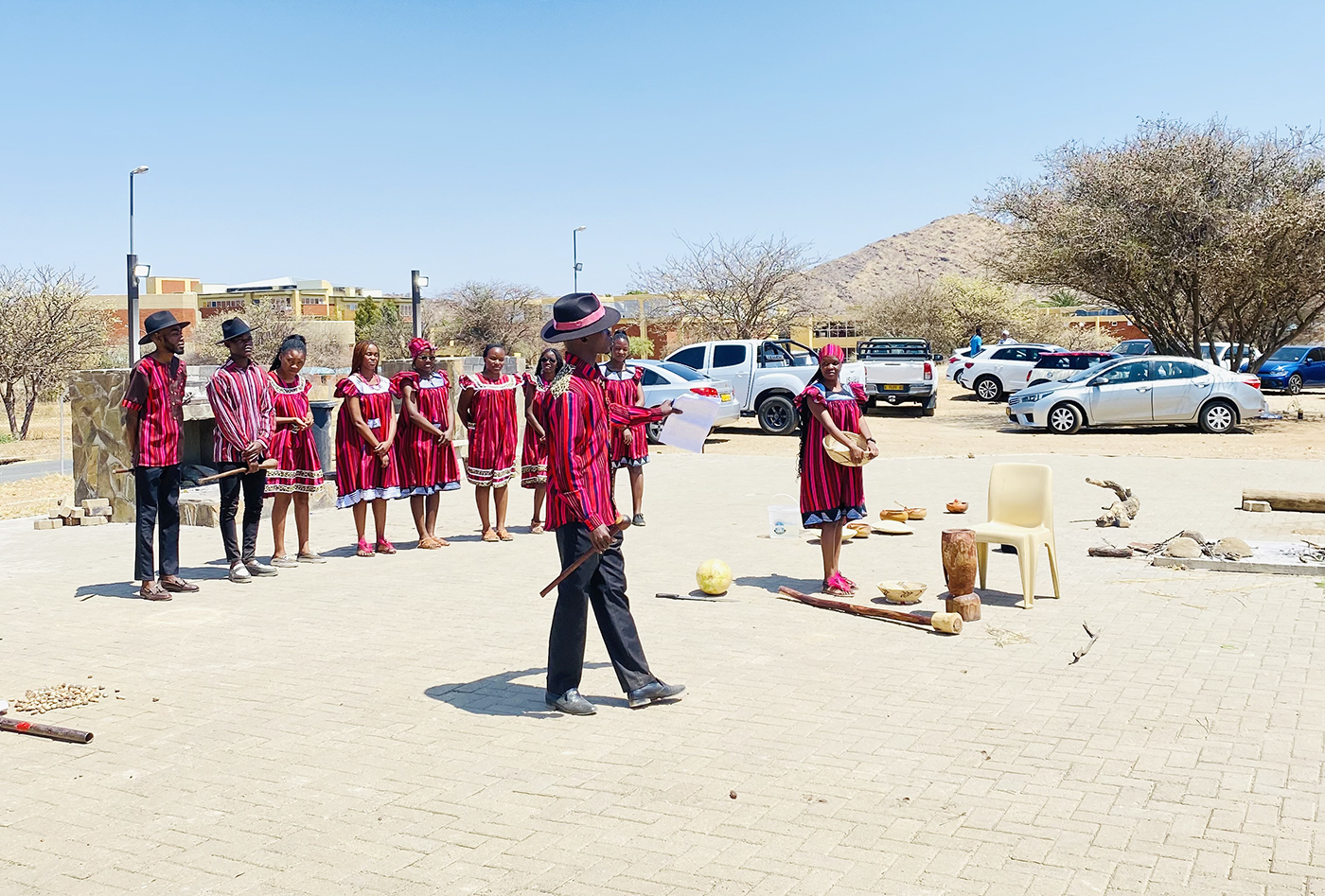
The displays of Aawambo cultural ethics added both academic intensity and traditional authenticity to the atmosphere, making the event a fusion of academic knowledge and cultural celebration.
One of the event’s highlights was an instructive and engaging display of how the Aawambo people have sustained themselves for generations by producing their own food and oil. The marula tree was pointed out for producing very nutritious oil, meanwhile the development of traditional spinach and traditional beverages brought a dimension of food and drinks’ discovery to the celebration, allowing students and attendees to sample true Aawambo cuisine.
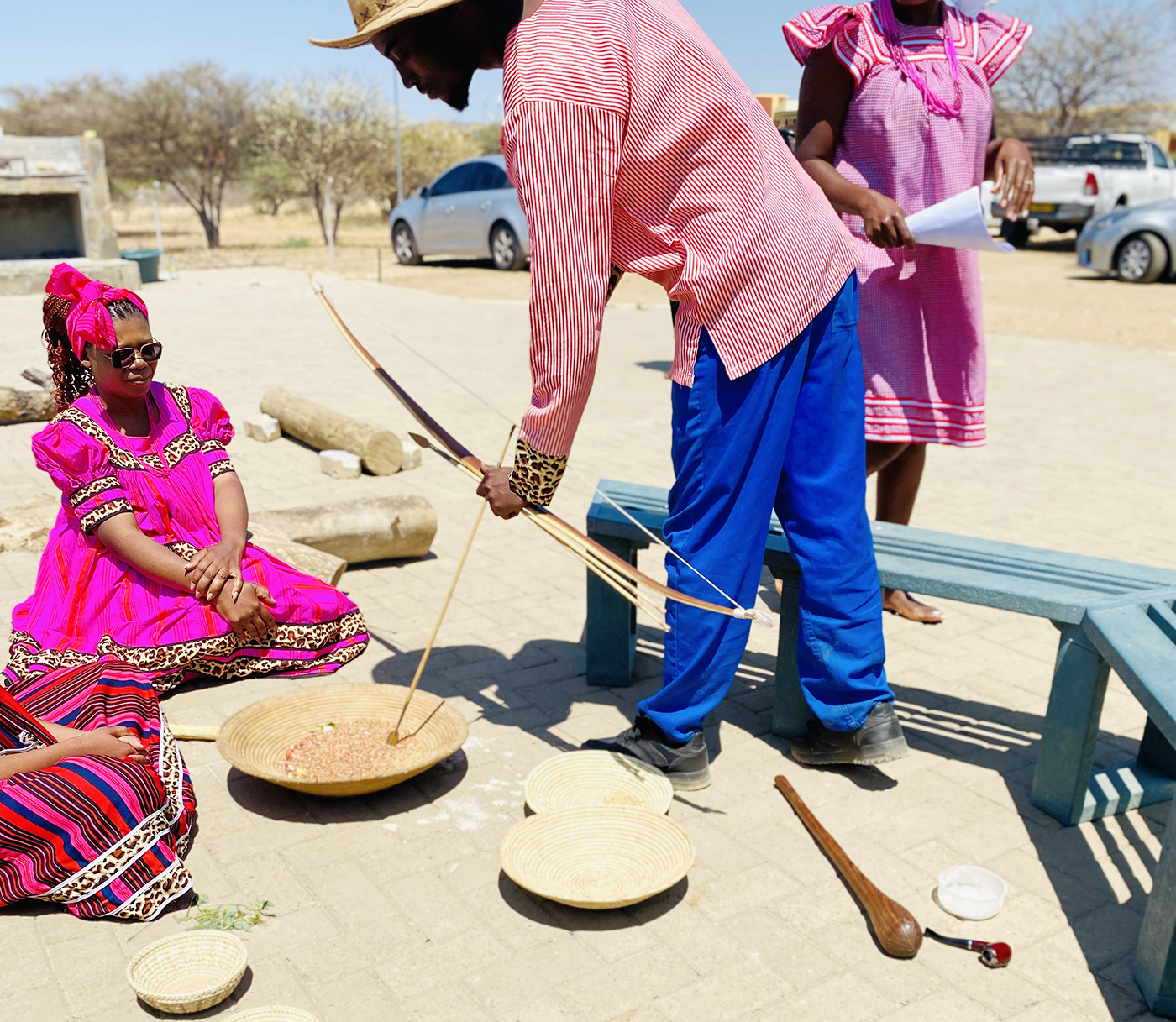
According to Prof. Mbenzi, “Oshipe is not just a celebration of food; it is a spiritual journey, one that links us to our ancestors and teaches us the value of sustenance in harmony with the land.” This sustainable approach was highlighted even more while students prepare mahangu (pearl millet) and sorghum porridge, both Aawambo food essentials. Attendees saw how traditional food is prepared, from milling grains to cooking over open fires. The procedure was not only educational, but also a reminder of the Aawambo people’s deep relationship to the land they farm.
Haimbondi Teofilus, a 4th-year Oshiwambo major and a member of a performing group, shared insightful knowledge about the Omusati (mopane) tree. “In the Aawambo culture, the mopane tree symbolises peace, luck and tranquillity,” he explained, drawing attention to the lush green mopane leaves that were part of the group’s display. This knowledge, rooted in centuries of Aawambo history, resonated deeply with attendees, offering a symbolic connection between the natural world and cultural identity.
More than entertainment, more than festivities
The Oshipe Festival did more than simply entertain. It served as a cultural bridge, linking students to their heritage and creating a platform for younger generations to celebrate the values and traditions of the Aawambo people.
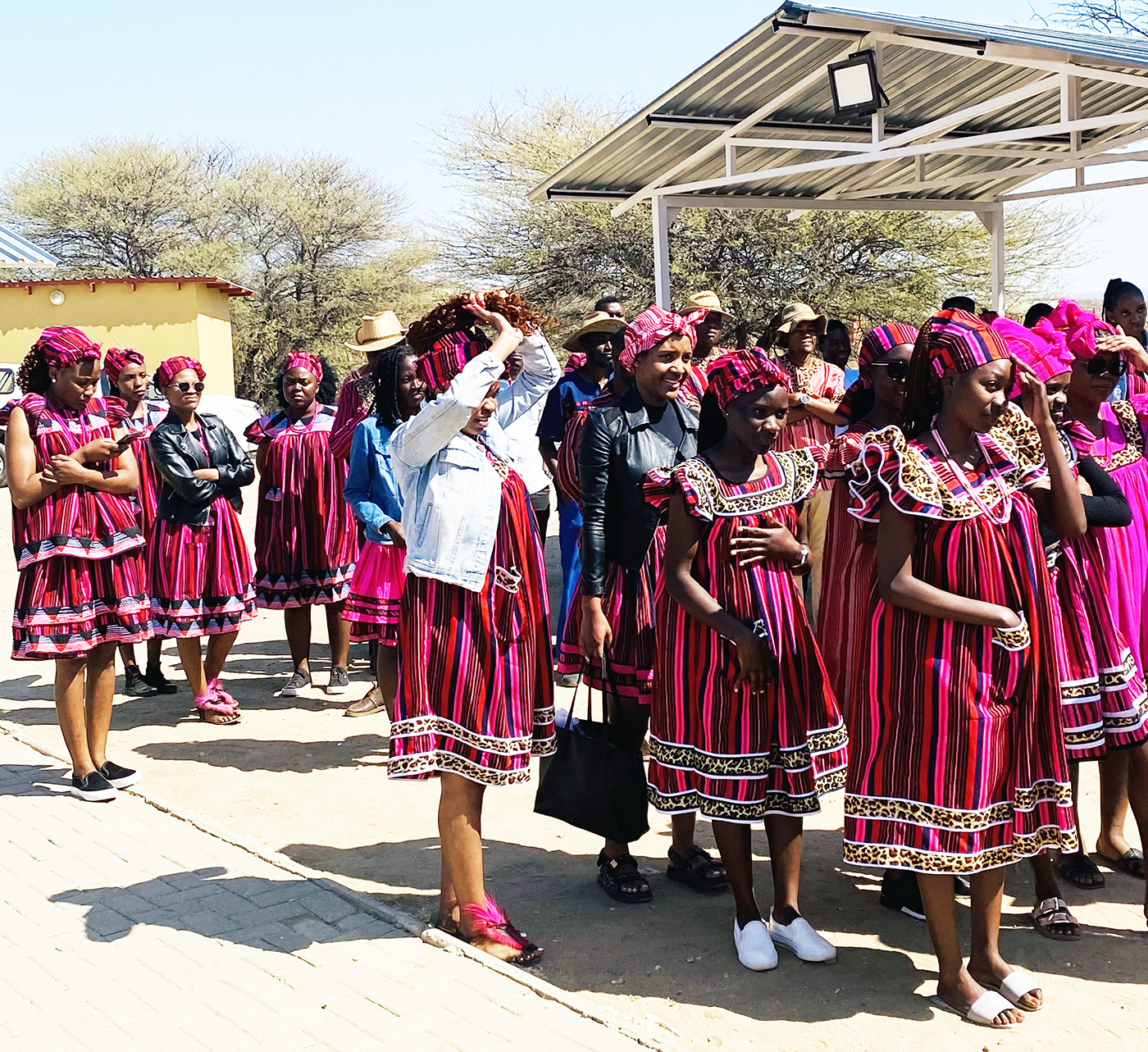
Professor Mbenzi captured this essence, stating, “The festival allows students to become the custodians of their culture, to ensure that the practices and values of Aawambo are passed on to future generations.” As UNAM continues to promote cultural diversity and indigenous knowledge, the Oshipe Festival remains an important cornerstone in the School of Humanities, Society & Development’s calendar, nurturing an appreciation for Namibia’s rich culture.
Through events like this, where education meets tradition, the Oshiwambo-speaking students of UNAM demonstrated the importance of heritage preservation, making the Oshipe Festival not only an academic requirement but also a living celebration of Namibian culture.
Simon Shindinge, a 2nd-year Bachelor of Arts in Media Studies (Public Relations) (Honours) student, is currently completing his Practical Training Placement at UNAM’s Corporate Engagement & International Relations Directorate.



